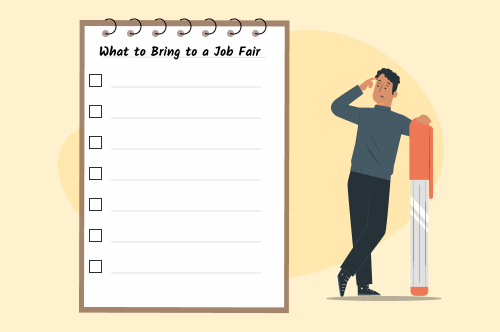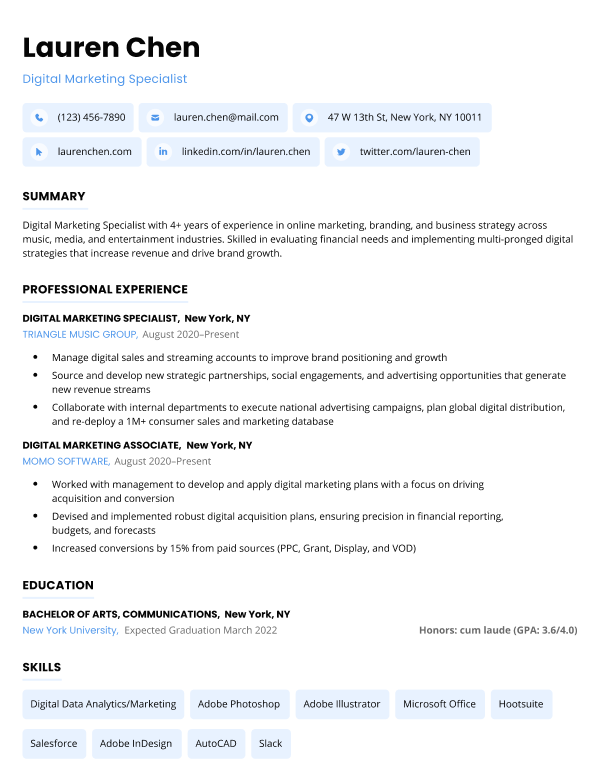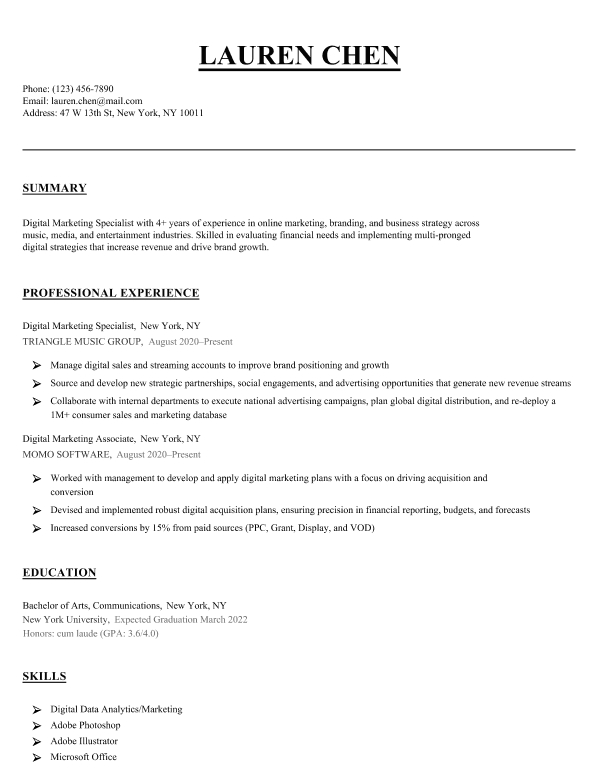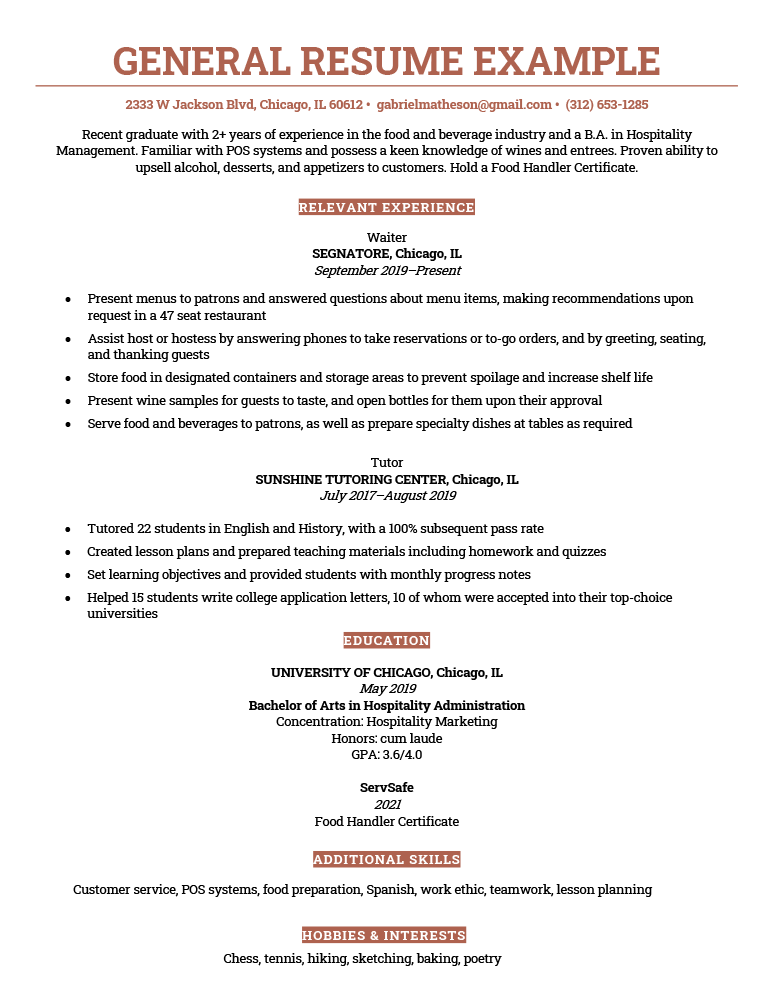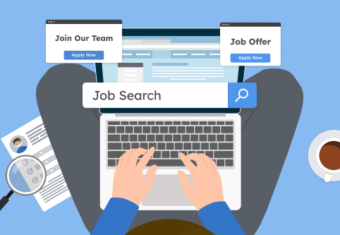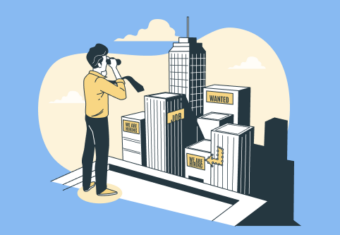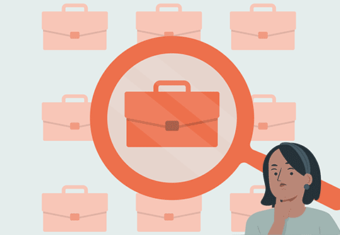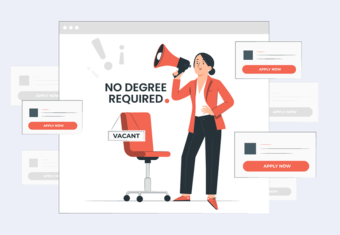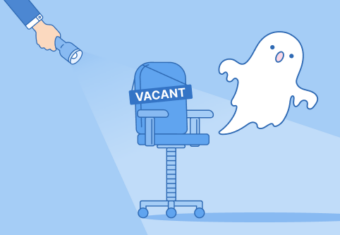About to begin your job hunt but not sure where to start? Attending job fairs is a great way to discover new job opportunities and connect with recruiters, especially if you’re a recent college graduate or looking for an entry-level role.
Thorough preparation is key to job fair success, but if you’ve never attended one, knowing what to bring to a job fair is tricky.
Below is a list of the most important items to bring:
1. A shortlist of companies
Improve your chances of landing a job with a job fair visit by researching the companies participating beforehand. Make a list of the businesses you’re curious about, along with some background information on them.
Not only will this ensure you won’t waste time trying to figure out which booths to visit, it’ll also allow you to think of answers to potential questions recruiters might ask you.
If you can’t answer common interview questions like “why should we hire you?” or explain why you’d like to work for the company, recruiters will assume you lack passion for the job.
2. Multiple copies of your resume
Even if you only intend to approach a few recruiters, bring five more copies of your resume than you think you’ll need.
Our free-to-use resume builder can make you a resume in as little as 5 minutes. Just pick the template you want, and our software will format everything for you.
A couple of copies might get lost, or you might end up being drawn to companies that weren’t on your original list. It’s better to be over-prepared than to have to tell a hiring manager that while you’re interested in their business, you ran out of resumes.
If you’re applying for different kinds of positions, either prepare a general resume like the one below or write several resumes targeted at each role you’re interested in.
Just be sure you know how to make your resume stand out to increase your chances to be considered for an interview.
3. A notebook or a phone
After a long day of speaking to hiring managers and recruiters, remembering names and contact details off the top of your head will be difficult.
Bring a notebook or use your phone to take notes and avoid forgetting important information related to job applications and networking opportunities. Just remember to set your phone to silent so it doesn’t interrupt you when talking to a potential employer.
If you’re relying on your phone for taking notes, bring a power bank just in case your battery starts to run low.
4. A list of questions to ask recruiters
Knowing what questions to ask in an interview at a job fair is necessary to be able to gather the information you need to decide which companies to apply to, and to make a good first impression on hiring managers.
You might think that a five-minute job fair interview in a busy environment isn’t enough time to judge someone’s professional qualities, but recruiters at these events are skilled at quickly evaluating candidates.
Job seekers who ask relevant, thoughtful questions demonstrate both research skills and attention to detail. They also appear more organized than attendees who ask superficial questions that could be easily answered by a quick Google search.
5. Your portfolio
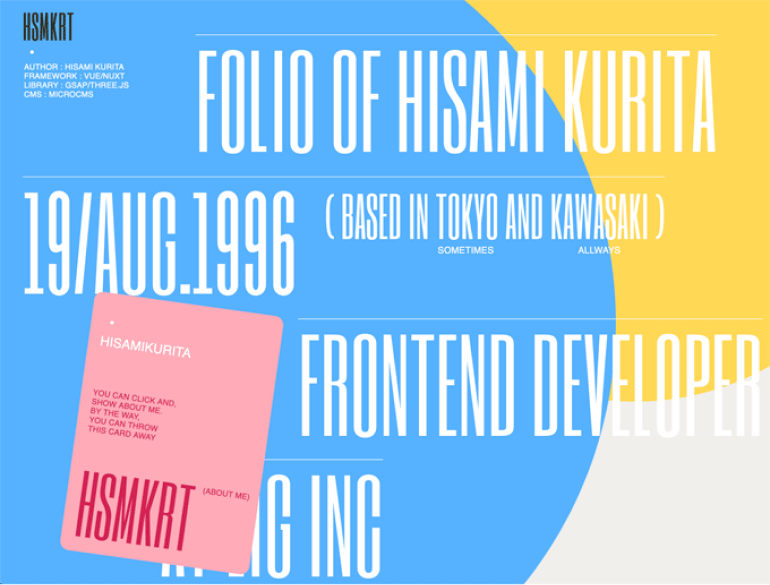
Recruiters at job fairs interact with dozens of applicants in a single day. To stand out and leave a lasting impression, bring a portfolio of your most impressive work to show them.
Depending on your industry, bring either a physical copy or add a link to your digital portfolio on your resume so recruiters can look it up if they want to see examples of your work.
If you include a link to your portfolio on your resume, make sure that the URL is short and simple so that recruiters will be able to find your portfolio easily.
6. Business cards
If you have them, bring a stack of business cards with you to the job fair. They’re a quick way to share your contact information with prospective employers, and they make you appear professional.
Additionally, with so many career-oriented individuals around, you’re bound to connect with others within your industry who could prove to become important connections in the future. Exchanging business cards helps you stay in touch.
7. A change of clothes
The last thing you want to worry about while approaching businesses at a career fair is a coffee stain on your shirt. While recruiters understand that accidents happen, looking less than presentable could take a toll on your confidence. Pack a change of business casual clothes just in case to avoid potentially embarrassing moments.
Job fair checklist
Here’s a checklist for you to use to make sure you don’t forget to pack anything important:
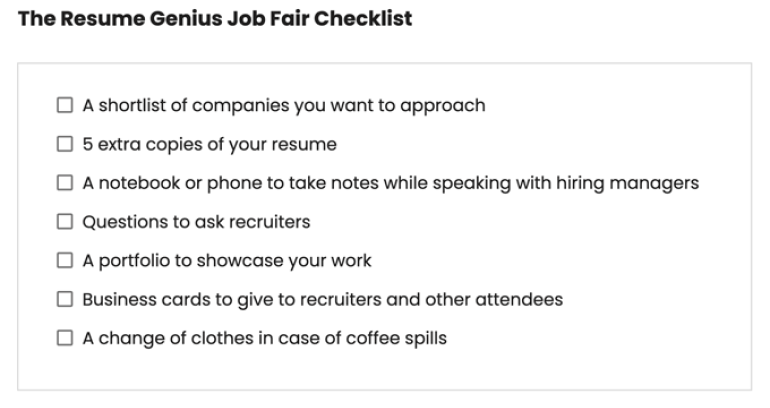
Tips for preparing for a job fair
In addition to writing a job fair checklist, here are our other top tips for a successful career fair:
Practice your elevator pitch
Part of your job fair prep should include setting aside some time to craft a compelling introduction that quickly gives recruiters an overview of who you are as a professional. In just 30 to 60 seconds, it should succinctly highlight your most relevant skills, qualifications, and career goals.
Practice delivering it with confidence and enthusiasm, ensuring that it flows naturally.
An effective elevator pitch will help you peak recruiters’ curiosity and is the first step to securing an interview invitation.
Plan your day
Job fairs can be overwhelming. If you have a long list of companies to visit, you want to avoid running out of steam before you get to visit your top choices. The key to success is to plan your day ahead of time.
Make a rough schedule and plan to visit companies you’re genuinely interested in early in the day to ensure recruiters see your best side. Save your second and third choices for later.
Keep an open mind
Even if you’ve done lots of research on participating companies and have a clear game plan for the fair, remind yourself not to close any doors.
You never know – there might be a company that didn’t spark your interest previously but that could turn out to be the perfect match once you speak with its representatives on-site. Keeping an open mind prevents you from missing out on potential career opportunities.
Frequently asked questions about job fairs
Here are a few answers to some frequently asked questions about job fairs:
How do job fairs work?
At a job fair, job seekers have the opportunity to meet with numerous employers in different industries, streamlining the job search process.
Attendees can introduce themselves, submit resumes, and ask questions to learn more about potential employment opportunities. It’s a chance for face-to-face networking and a fast-track way to explore a wide range of career prospects in one place.
These types of hiring events are typically organized by universities, professional associations, or community organizations.
What happens at a job fair?
At a job fair you’ll visit booths of various employers to receive more information about their business, connect with recruiters, gather information about job openings, and you may even participate in on-the-spot interviews.
How many resumes should I bring to a job fair?
You should bring as many resumes as the number of companies you plan on visiting, plus a few additional copies for back-up. About five extra copies should be enough in case you lose one or two or end up visiting more company booths than you originally planned.
How do you stand out at a job fair?
Standing out among hundreds of other attendees can be difficult, so make sure you:
- Dress professionally
- Network actively
- Prepare well-researched, thoughtful questions
- Follow up with recruiters after the career fair
Do I need a cover letter for a job fair?
While you don’t need to bring a cover letter to a job fair, writing a general cover letter to accompany your resume is a good idea. Not only does it show potential employers that you’re ready to go the extra mile, it’s also an opportunity to showcase more of your abilities.
Click to rate this article
4.5 Average rating


